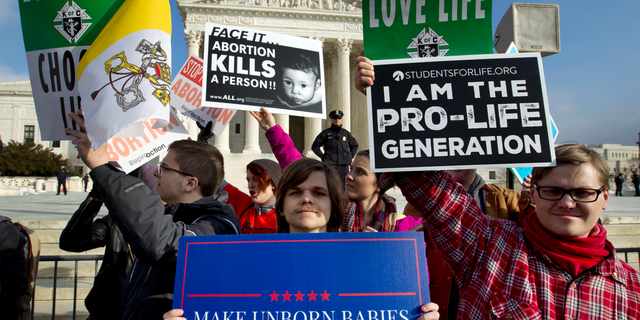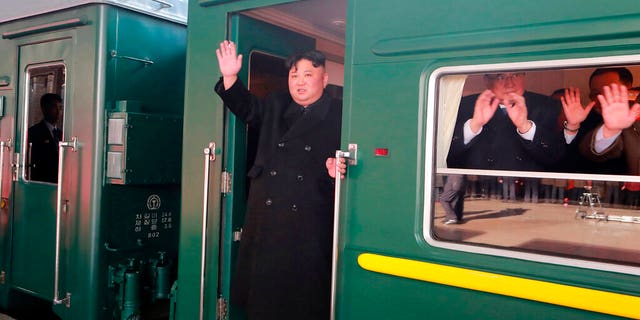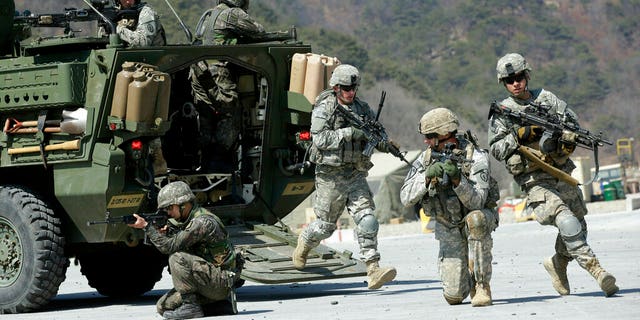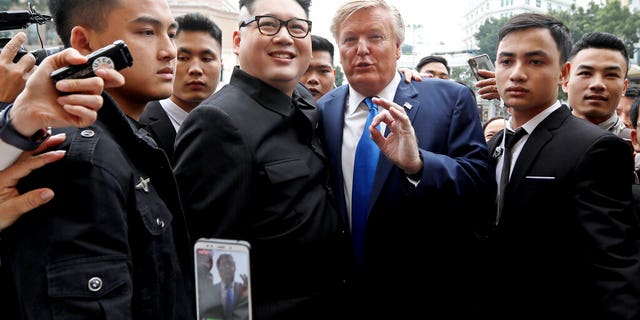Senate Democrats on Monday blocked a Republican bill that would have threatened prison time for doctors who don't try saving the life of infants born alive during failed abortions, leading conservatives to wonder openly whether Democrats were embracing "infanticide" to appeal to left-wing voters.
All prominent Democratic 2020 presidential hopefuls in the Senate voted down the measure, including Bernie Sanders of Vermont, Kamala Harris of California, Cory Booker of New Jersey, Kirsten Gillibrand of New York, Amy Klobuchar of Minnesota and Elizabeth Warren of Massachusetts. The final vote was 53-44 to end Democratic delaying tactics -- seven votes short of the 60 needed.
Three Democrats joined Republicans to support the bill -- Joe Manchin of West Virginia, Bob Casey of Pennsylvania and Doug Jones or Alabama. Three Republicans did not vote, apparently because of scheduling issues and plane flight delays -- including Kevin Cramer of North Dakota, Lisa Murkowski of Alaska and Tim Scott of South Carolina.
The Born-Alive Abortion Survivors Protection Act would have required that "any health care practitioner present" at the time of a birth "exercise the same degree of professional skill, care, and diligence to preserve the life and health of the child as a reasonably diligent and conscientious health care practitioner would render to any other child born alive at the same gestational age."
The bill, which exempted the mother involved in the birth from prosecution, also would have required practitioners to "ensure that the child born alive is immediately transported and admitted to a hospital." It prescribed a possible term of imprisonment of up to five years for violations, not including penalties for first-degree murder that could have applied.
In response, President Trump tweeted late Monday that "This will be remembered as one of the most shocking votes in the history of Congress."
"Senate Democrats just voted against legislation to prevent the killing of newborn infant children," Trump wrote. "The Democrat position on abortion is now so extreme that they don’t mind executing babies AFTER birth."
Other Republicans were also incredulous. "I want to ask each and every one of my colleagues whether or not we're OK with infanticide," said the measure's chief sponsor, Sen. Ben Sasse, R-Neb.
Speaking to Fox News' "The Story" after the vote, Sasse said he was "surprised" at each vote against the bill, and charged that opponents had lied "constantly" with "blatant nonsense" about the legislation -- specifically, by claiming the bill "would end abortion" entirely.
"This is about the most simple thing you can say, which is that a baby is a baby, and they have dignity and worth," Sasse said. "And it's not because they're powerful. It's because they're babies. Today is a sad day in the United States Senate."
Sasse added, "This shouldn't be about politics. ... This should be about having heart."
Other pro-life activists called on the 44 senators who voted against Sasse's bill to resign immediately.
“Senators who could not bring themselves to vote to pass the Born-Alive Abortion Survivors Protection Act should reconsider whether or not they have what it takes to serve," March for Life President Jeanne Mancini said in a statement. "Senator Sasse’s common sense bill would merely require doctors assist a newborn struggling to survive after a failed attempt on her life. Anyone who lacks the basic level of human compassion needed to vote in favor of this should quickly find another job. We look forward to a vote in the House of Representatives so that Chamber can get on record as well.”
Opponents, noting the rarity of such births and citing laws already making it a crime to kill newborn babies, said the bill was unnecessary. They said it was part of a push by abortion opponents to curb access to the procedure and intimidate doctors who perform it, and said late-term abortions generally occur when the infant is considered incapable of surviving after birth.
“This bill is just another line of attack in the ongoing war on women’s health,” New Hampshire Democratic Sen. Jeanne Shaheen said on the Senate floor.
Sasse's bill would have faced an uphill battle in the House, where Democrats hold the majority.

A similar 2002 bill, called the Born-Alive Infants Protection Act, was passed unanimously by the Senate in 2002 and signed by then-President George W. Bush.
Sasse attempted to pass the new bill by unanimous consent earlier this month but was blocked. Unanimous consent requires all 100 senators to agree, and Sen. Patty Murray, D-Wash., objected to Sasse's bill, saying the legislation was unnecessary and amounted to a political stunt.
The legislation was introduced after Virginia Gov. Ralph Northam, a Democrat, endorsed post-birth abortions while discussing The Repeal Act, a state bill which sought to repeal restrictions on third-trimester abortions. Virginia Democratic Del. Kathy Tran, a sponsor of that bill, was asked at a hearing if a woman about to give birth and dilating could still request an abortion.
"My bill would allow that, yes,” Tran said. Northam, in a later interview with a radio station, backed up Tran.
"When we talk about third-trimester abortions, these are done with the consent of, obviously, the mother, with the consent of the physicians, more than one physician, by the way," Northam said. "And, it's done in cases where there may be severe deformities, there may be a fetus that's non-viable."
Northam continued: "So, in this particular example, if a mother is in labor, I can tell you exactly what would happen. The infant would be delivered. The infant would be kept comfortable. The infant would be resuscitated if that's what the mother and the family desired, and then a discussion would ensue between the physicians and the mother. So, I think this was really blown out of proportion."




























